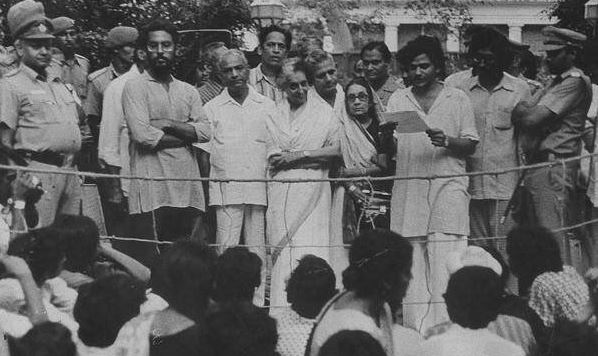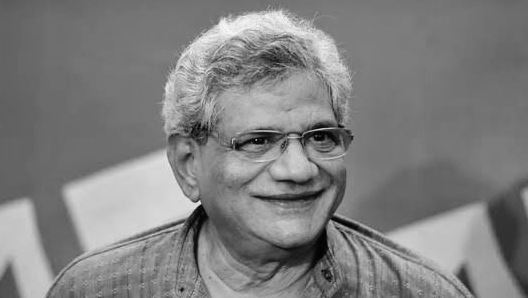New Delhi: Sitaram Yechury, the 72-year-old general secretary of the Communist Party of India (Marxist) (CPI(M)), passed away on Thursday, as confirmed by New Delhi’s All India Institute of Medical Sciences. Yechury, who was widely regarded as a prominent and affable figure within his party, had been battling a respiratory tract infection.
Yechury began his political journey as a student leader at Jawaharlal Nehru University (JNU) nearly 50 years ago and ascended to the position of CPI(M) chief in 2015. Under his leadership, the party formed its first pre-poll alliance with Congress and other Opposition parties to establish the Indian National Developmental Inclusive Alliance (INDIA) last year.

During Yechury’s tenure, CPI(M) saw significant milestones, including electing its first parliamentarian from Rajasthan in the 2024 national elections. However, the party struggled to regain its former influence, particularly in West Bengal, where it ruled for 34 years but now holds no assembly or Lok Sabha seats. The party also lost power in Tripura after 25 years in 2018. Currently, CPI(M) holds four seats each in the Lok Sabha and Rajya Sabha and 78 assembly seats.
Yechury’s political influence endured despite the party’s declining base. In the 1970s, he gained national attention by preventing then Prime Minister Indira Gandhi from attending a JNU event and reading out the students’ demands for her resignation. He later formed a strong relationship with former Congress leaders Sonia Gandhi and Rahul Gandhi, which sometimes drew criticism from within CPI(M) and Congress ranks.
Notably, Yechury was among the first non-Congress leaders Sonia Gandhi contacted in May 2004, ahead of forming the Congress-led United Progressive Alliance (UPA) government. He was present at Harkishen Singh Surjeet’s residence when Gandhi announced she would not be Prime Minister, a moment Yechury recalled in an interview earlier this year.
Born in Chennai in 1952, Yechury left his studies at Nizam College in Hyderabad to move to Delhi, where he topped the Central Board of School Education Class 12 exam in 1970. He continued his education in economics at St Stephen’s College and JNU, where he met fellow communist Prakash Karat.
Yechury was known for his moderation and ability to bridge ideological divides, a contrast to the rigid stance of his contemporaries. His efforts to maintain Left support for the Congress-led government during the India-US nuclear deal negotiations highlighted his pragmatic approach to politics.
Admired for his ability to communicate in multiple languages and his diplomatic skills, Yechury was also recognized for his intellectual curiosity and openness to diverse cultural influences. His column, Left Hand Drive, reflected his broad interests, from Michael Jackson to Ustad Ali Akbar Khan, illustrating his belief in the intersection of materialism and idealism.
Yechury’s death marks the end of an era for the CPI(M), leaving a legacy of resilience and strategic acumen in Indian politics.



